|
Guest blogger Harold Halpern is a lawyer who grew up in Buffalo, retired at age 85, and traveled by himself from Sarasota, Florida to Tel Aviv, Israel at age 88 in May, He is a board member of the American Association of Jewish Lawyers and Jurists. He also writes a column for the Sarasota Herald-Tribune. He is currently planning a trip to Abu Dhabi for February, 2023. Here is his story of his recent May trip to Israel. 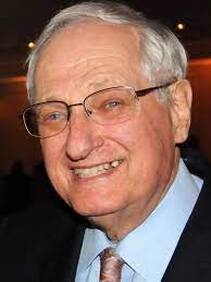 I was delighted to accept my daughter Lisa’s invitation to be a guest blogger. In mid-May I went to Israel with four legal colleagues for a week of informal meetings with judges, lawyers, think tanks, members of the government, and opinion makers to learn about legal, political, and social matters. I met up with my colleagues at the Newark airport on May 14th. After meeting with retired Supreme Court Justice Ely Rubenstein on May 19th, I missed a step as we were leaving the Supreme Court Building in Jerusalem. I went flying into the wall and floor with my right foot splayed out perpendicular to my body. I could not move it, nor could I get up. One of my colleagues was able to help me sit up, which enabled me to slide my back against the wall. From that moment I was physically unable to care for myself without help. Soon a wheelchair was procured into which I was physically lifted. Now what do I do? I called my good friend Stuart Fischman, originally from Buffalo, who made Aliyah to Israel about 20 years ago. We had made plans for lunch together with a group of his Israeli friends. “Stuart,” I said, “change of plans.” I told him what had happened, and he directed me to a clinic where he would meet me. I could do nothing on my own. My friends hailed me a taxi, lifted me into it without twisting my leg or foot, and the leader of our small mission, Steve Greenwald, went with me. He went into the clinic and found a wheelchair. It was a hard push and a long walk. I pointed to a young man wearing a kippah; a head covering worn by traditional Jews. Steve asked him to push me, a stranger, to the 2nd floor clinic. He did so without hesitation and refused to accept any money. He was fulfilling a mitzvah to help a person in need. I had fractured my hip. I decided to go back to my hotel and then later was taken by ambulance to Ichilov hospital in Tel Aviv. I was there from May 19th to May 29th. I was unable to do anything to help myself or even get out of bed until the last couple of days. After some uncertainty, the doctors decided not to operate but to let normal healing to take place, as the fractured bone had not been displaced. I was totally dependent on the nurses and attendants each day. My daughters, Lisa and Samantha, took over the mysteries of my travel insurance to have me flown home. This task was not easy. I had bought a travel insurance policy on my own before I left for my trip in case something went wrong. Pursuant to the provisions of my policy, I was promised 24/7 emergency assistance services. But Lisa was not able to get anyone from the travel insurance company to pick up the phone or respond to emails. She and Samantha spent hours calling the company and holding on the phone each day, hoping that someone would answer, as well as emailing the company. They finally sent messages via LinkedIn to the CEO, COO, Counsel, and Executive Assistant to the CEO of the company asking for help on my behalf. Five long days after the fall, someone returned Lisa's call. Lisa used her dispute resolution skills to persuade the insurance company’s representatives to give her their personal cell numbers so that she could easily communicate with them. She also persuaded the company to send a medical escort from the United States to Ichilov Hospital in Tel Aviv so that I could travel home since I had missed my flight scheduled for May 21st. This win was accomplished after many required forms were filled out by the clinic in Jerusalem and the hospital staff in Tel Aviv to convey the need for a medical escort. I was scheduled to travel from Tel Aviv to Sarasota, connecting through Newark, New Jersey. The escort was a medical doctor who helped me to pack up, check in for the flights, be transported by ambulance to the Tel Aviv airport, obtain a wheelchair, and transfer me from wheelchair to airplane seat. He stayed with me throughout the change of plane and stop over in Newark, the plane ride to Sarasota, and the ambulance transport to Sarasota Memorial Hospital. Lisa reinforced my opinion that interest based negotiation and mediation are effective tools for dispute resolution. I initially had concluded that the insurance company was a scam due to the complete lack of response and was ready to fight. I had contacted my own personal lawyer back in Buffalo from my Tel Aviv hospital bed and asked him to run a global check to see if the company was legitimate. Before he had a chance to do so, my daughters were able to establish a very friendly relationship with a wonderful representative of the insurance company. They all worked together for days to ensure that I was able to fly home safely. At present, we are still sorting out all of the medical bills with Medicare, my supplemental health insurance plan, and my travel insurance plan. I spent two weeks at Sarasota Memorial Hospital as I slowly began rehabilitation. Now, two months after my fall in Jerusalem, I am walking with an appreciated sense of freedom which disability inhibits. So, I marvel at those who struggle to overcome greater disabilities. We must do all that we can to help to enable everyone who is physically or mentally impaired to cope and to succeed in our complex society. A final word. I am appreciative of Stuart staying with me at the clinic, my daughter Samantha’s in-laws, Yossi and Netta Kantor, who guided me through Israel’s medical systems, and my colleagues and friends who visited regularly. My wife, Susan, kept up my spirits with her love and devotion. And our children and grandchildren’s love touched my soul.
1 Comment
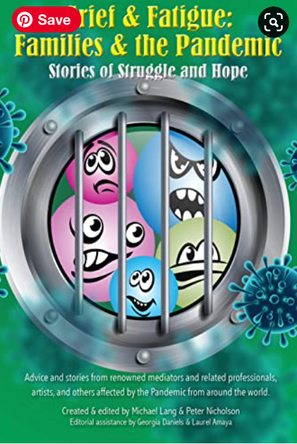 Excited to share that the book Grief and Fatigue: Families & the Pandemic, Stories of Struggle and Hope has just been published thanks to the work of Michael Lang and Peter Nicholson. This is the third book in a series on the pandemic with the goal of providing advice, support, compassion, and hope from mediators and professionals from around the world. I was happy to contribute my story Four Graduations and a Surprise Wedding in March of 2022 to the book. Here is the unedited version. Our family had a big year in 2021 -- we celebrated four graduations and threw a surprise wedding! To recap: our five children embarked on new phases in their lives in 2021. Katherine graduated from college and moved to Houston with her boyfriend; she is working in sales and marketing. Will graduated from military college and is in northern Virginia working in cybersecurity. Julia graduated from graduate school with a Master's degree in Journalism and relocated back to Arlington with her boyfriend; she is working as a writer in D.C. John graduated from high school and went off to college, continuing his work for PBS. Katie started a new job consulting in D.C. and bought her first home. Education and work for our children during the pandemic was very difficult for John, a high energy extrovert, who spent much of his junior and senior years of high school at home learning and working remotely. Katherine and Will, however, adjusted nicely to attending college online for many months. Julia adapted well to working on her graduate degree remotely, and Katie had no problem starting a new job working remotely from home. It is not easy to throw a surprise wedding, but Joel and I figured that having met over fifty-five years ago in kindergarten in Buffalo, N.Y., dating for the past eleven years, and being engaged for the past six years, the time was right. We were suddenly empty nesters. We thought a surprise wedding just before the holidays would be wonderful for everyone. We knew that the children would be very happy and excited for us. In addition, their lives would not be impacted in any way from our marriage. We had blended our two families very slowly and gradually over the past eleven years. Most people assumed we were already married. It was challenging to accomplish the goal of having our children gather in one place on time, and we were worried that maybe their jobs would interfere or that they would not be punctual or that they would not be dressed appropriately for wedding pictures. We had told them weeks before that we were having a family gathering at 11:30 a.m. on December 19th. They kept forgetting. So, we told them the day before that there was going to be a wedding. The night before the wedding, December 18th, the photographer canceled abruptly after I emailed her to confirm details for the wedding day. She said in an email that we were not a good fit for her because she was not vaccinated at all. We felt stressed, angry, and defeated. It would have been nice to relax the night before our wedding. John found a replacement photographer who was vaccinated, always wears a mask when he photographs weddings, and was available last minute. Katherine’s Saturday morning flight from Houston had been delayed for hours, and she finally arrived home Sunday morning, the day of the wedding, at 3:30 a.m. I had a nagging thought in the back of my mind that she could be Covid positive, given she had spent the entire day and night at the airport with throngs of holiday travelers. We had a wonderful wedding day on Sunday, December 19th. There were a total of ten people at our wedding at home: five kids and a boyfriend, one rabbi, one photographer, and a bride and groom. Our long time friend and rabbi Jeff played two beautiful songs on his guitar. Afterwards, our family went to brunch on the Georgetown waterfront and then returned home to exchange holiday gifts and trim the tree. While we would have loved to have had our families and friends with us, we did not consider having a bigger wedding due to the current Omicron variant. It was fun to share pictures and the video of our wedding later that night. We loved hearing that our happy news surprised everyone, made people smile, and was a bright spot in a long hard year. Katherine flew back to Houston on December 20th, received her booster vaccine the following day, and the next day, December 22nd, she texted to say she had tested positive for Covid. We could not believe this news. We all tried to remain calm. Luckily, she did not feel sick and never developed any symptoms. We notified the rabbi and photographer immediately. These calls were tough to make right before the holidays. It was impossible at first to find Covid home tests in the stores just before Christmas Day. The lines for PCR tests were eight hours long outside at the testing kiosk we had used previously. Drop-ins were not allowed, and appointments were not available anywhere. We finally were able to purchase rapid home tests on Christmas Eve day after a lot of driving around and searching. We were relieved that we all tested negative. Several friends and relatives were in touch those last days of December to congratulate us and to say that they had come down with Omicron after months of avoiding Covid. Knowing that their symptoms were manageable and mild helped us to work through the fear and anxiety we had about being directly exposed to Covid. We felt that we had done the right things for so long – getting vaccinated and boosted, wearing masks, washing hands, staying at home, avoiding crowds. We knew we needed to continue to take those precautions. Our decision to remain vigilant and careful was strengthened because we know two people suffering with long Covid. Long walks in nature on sunny days have helped us to cope with the exhaustion of dealing with Covid. With spring approaching, we are looking forward to getting back out into the world at our own pace after a long two years of staying inside and being careful. We don’t plan to throw caution to the wind, but we do feel ready to get out of the house, and do the things we used to love to do, all while continuing to protect our health. Photo by JB Elliott photography
Guest blogger, educator, community leader, and friend Annie Moyer is Co-Founder and President of Awakening Yoga Spaces, as well as Co-Owner and Director of Sun and Moon Yoga Studio in Arlington, Virginia.
Recent rulings from the Supreme Court, revelations on Capitol Hill, and the ongoing pandemic have shaken loose the constitutional, institutional, and biological ground we stand on. And like an earthquake that affects those closest to the fault line, the aftershocks of far-reaching events rattle the fiercest for those whose suffering is already heightened by any form of marginalization. But everyone's feet are fastened to the same earth, so when it shakes for some, it shakes for all, regardless of our views. Yoga scholar Dr. Shyam Ranganathan (@yogaphilosophy_com) characterizes the yoga tradition as a force for personal and social transformation that “renders our activity appropriate for the challenges we face now.” It’s a call that echoes at once morally inward and ethically outward, asking what’s our next move? The first step is inevitably universal and arguably simplistic: take a breath, and note your place on the literal ground. Orienting to our present moment’s truth is the only way we can know which direction to aim our next steps. If something hurts, feel the pain. If something confuses, ask questions. If something angers, trace the anger’s source. If something is untenable, reach out to what you can reliably touch: a friend to give a comforting hug, a donation button to give material support, or the earth where you’ve planted – with eternal optimism – your summer tomatoes. And if conversations about hot-button issues leave you shaken, choose a practice that calms, balances, and primes you for the actions you deem most wise. If you choose to do that with us here at Sun & Moon, know that our ground is steady and our arms are open. Right before the pandemic began, my friend and colleague Heidi Ellenberger Jones of Modern Jones Real Estate asked if she could interview me to understand how the mediation process works. When the pandemic hit, I forgot all about this interview. The other day, Heidi posted the video on her Instagram, and I am sharing it below. 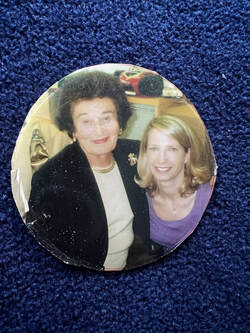 My hero, Gerda Weissmann Klein, died at age 97 on April 3, 2022. She was a young Holocaust survivor who grew up in Poland. Her brother was first taken from the family by the Nazis, and then Gerda was separated from her parents at age fifteen and never saw them again. Her father told her in June of 1939 when she was taken from her family to wear her ski boots that day. She spent six years in slave labor camps and concentration camps. She later discovered that her parents and brother had all died during the Holocaust. American Kurt Klein had grown up in Germany and came to the United States at age seventeen, but his parents were sent to Auschwitz, despite his efforts to bring them to the U.S. as well. Kurt joined the U.S. Army to fight his homeland and became an intelligence officer. Gerda married handsome Kurt Klein who liberated her on May 7, 1945, the day before her 21st birthday, after she survived the cold and brutal Nazi death march. She says the ski boots her father insisted that she wear in summertime were instrumental in saving her life on that winter march. She remembers that the night before she was liberated, she was herded into an abandoned factory rigged with a bomb – but the bomb did not go off. Gerda and Kurt had three children, as well as eight grandchildren and eighteen great grandchildren. They moved to Buffalo, N.Y. for many years and then in retirement lived in Scottsdale, Arizona. She was an author, optimist, activist, storyteller, public speaker, educator, and recipient of the Presidential Medal of Freedom. She later created a non-profit organization called Citizenship Counts with her granddaughter Alysa. She was my friend and I adored her. She was the strongest, most resilient, most courageous person I have ever met. She was kind and compassionate and she loved her country. Her son Jim says in the forward to her book A Boring Evening At Home that one of his parents’ greatest achievements was that they overcame incredible loss at such a young age and created a normal life for themselves and their children with a lot of fun and a lot of laughter. Gerda and Kurt spread a message of love and hope in their speeches around the world. The principal of Columbine High School said, after Kurt and Gerda visited to comfort that community, “many of us will have physical and mental scars that will remain with us for a lifetime, but the words of inspiration, wisdom, and love provided by Kurt and Gerda have given us the hope to carry on into the future and hopefully our efforts will make the world a more loving and caring world for future generations.” I have wonderful memories of Gerda in Buffalo. My mother introduced me to Gerda, and her daughter Vivian taught my Sunday school class. The Klein family lived around the corner from my cousins. I heard Gerda speak about her experiences for the first time at my high school in Buffalo. Years later, I saw Gerda’s first book, All But My Life, in our temple library. Memories flooded back, and I asked her to come speak to our northern Virginia community. I thought my oldest daughter would want to meet her. Gerda must have been in her 80s then and she had the energy of someone decades younger. She boarded a plane and came to our temple. She spoke to two different standing room only audiences and signed her most recent book, A Boring Evening at Home. Later on, my children and I visited Gerda at her home in Arizona. Kurt died in 2002 while on a lecture tour and vacation with Gerda in Guatemala. When she spoke, Gerda would tell the story of her childhood friend Ilse, who once found a raspberry in the concentration camp and carried it in her pocket all day to present to Gerda that night on a leaf. She would say, “Imagine a world in which your entire possession is one raspberry and you give it to your friend.” Gerda had the ability to greatly impact her audiences with her soft spoken voice telling stories and anecdotes from the past. She truly empowered her audiences, young and old, by showing them that no matter how difficult life may be, we all can find beauty and meaning again like she did. Her books are all beautifully written, and All But My Life tells part of her story. The book was turned into a documentary called "One Survivor Remembers" that won the Oscar and an Emmy. I also loved her other books including Promise of A New Spring, The Blue Rose, and The Hours After. 'Hope is the light to the future” is what she said after the pandemic began. And “we discover the extent of our strength in our most hopeless moments”. As usual, she was full of wisdom, resilience, and optimism in dealing with the challenges of the pandemic. Below is an April 23, 2022 Washington Post article about Gerda that includes her memorable speech. when she won the Oscar. The music tried to play her off but she gave her acceptance speech, and it was beautiful and eloquent. https://www.washingtonpost.com/history/2022/04/23/gerda-weissmann-klein-love-holocaust/ Rest in peace dear Gerda.  Bill Eddy has worn many hats as a mediator, author, trainer, professor, lawyer, therapist, social worker, and kindergarten teacher. He is co-founder of the High Conflict Institute and pioneered the High Conflict Personality Theory (HCP). He has become an expert on managing disputes involving people with high conflict personalities. I have had the pleasure of training with Bill in Virginia, DC, and San Diego. I am sharing a blog post of Bill’s from highconflictinstitute.com that describes how to use empathy, attention, and respect to calm upset people. An EAR Statement™ shows Empathy, Attention, and Respect. This is especially helpful when you are dealing with someone who is really upset – possibly they are angry with you or someone else or they are sad, feeling helpless, or frightened. EAR Statements touch people where they need to be touched when they are extremely emotional. These are especially effective with people who have high-conflict personalities because they are often terribly afraid or terribly angry. They can help you connect with such a person, so that you can then shift to problem-solving. What’s An EAR Statement™? Essentially, an EAR Statement™ includes words and body language that show empathy, attention and/or respect for the listener. Ideally, these are done in-person or over the phone, but they can be put in writing as well. Here’s an example. Let’s pretend you’re talking to Cathy, who could be a family member, a friend, a co-worker, a client, or a customer: “I can see how frustrated you are by this situation, Cathy, and I want to help. Let’s talk about it so that I can really understand what’s happening. I have a lot of respect for the efforts you have made to deal with this problem.” Let’s break this down:
Any of these Three A good EAR Statement™ doesn’t even need to communicate all three of these. Just empathy is enough sometimes. Just paying attention often calms people down. Sometimes just giving a statement that shows respect is sufficient. Mostly, try one or more of these three types of statements (Empathy, Attention and/or Respect) and see how it comes across. From our experience, 90 percent of people calm down within 30 seconds of hearing an EAR Statement. Of course, this often takes some practice, but for many people, it works right away. Some Words of Caution Of course, this doesn’t work for everyone. Some people just want to stay angry and others are so overwhelmed it takes them several minutes of empathetic statements, concentrated listening and lots of respect to calm down. You can move on to using other methods if this one doesn’t work. EAR Statements also don’t mean that you believe the person or agree with them. Some high-conflict people won’t let go until you say you believe them or agree with them. Don’t say that unless you really do. Otherwise, you will forever be held accountable for once saying you believed them or agreed with them. And they will tell the world that you are on their side, when this may be totally untrue. So, just say something like this: “I wasn’t there, so I’ll never know what exactly happened. What I do know is that I want to help you, so let’s see what we can do now.” If you are in a dangerous situation, such as domestic violence or workplace bullying or sexual harassment, it may be best for you to just walk away and not even try an EAR Statement. Just get away! Safety first! Conclusion From parenting, to coaching, to leadership, using a simple EAR Statement can usually calm an upset person enough to talk about solving a problem or help an upset person feel better. You can use it when setting limits on misbehavior or a difficult conversation. You may have to use these statements more than once in a difficult conversation, but they can become quick and easy. They make your life easier. We have had success with EAR Statements for over a dozen years in several different countries and cultures. It’s a very human way of connecting. An EAR Statement™ can be very brief and doesn’t cost you anything. It can help you connect with almost anyone. It’s even helpful when delivering bad news, such as a parent, a manager or a judge. You can use one in a business meeting, while managing a difficult relative, or when ending a relationship. It can be used to keep situations from escalating in the workplace or in the neighborhood. If more people would regularly use EAR Statements—even in response to hostility—it might just make the world a better place for all of us. 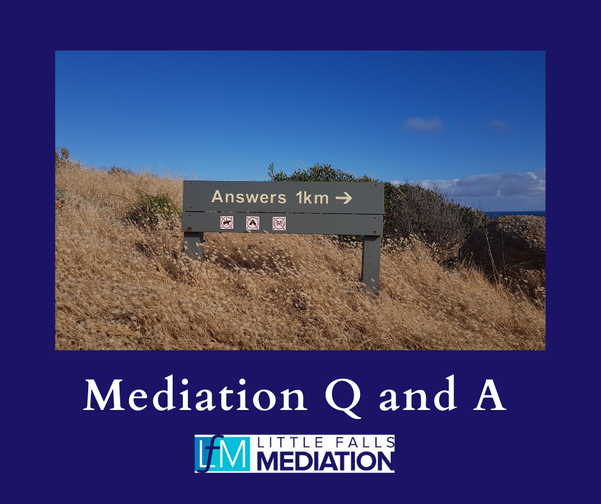 “Discourage litigation. Persuade your neighbors to compromise whenever you can.” --Abraham Lincoln I talk about what mediation is a lot to prospective clients, to new clients, and to current clients. Most people who contact me to explore mediation have never been part of a mediation before and are not sure what it is exactly. My job is to empower them with information so that they understand if mediation is right for them, what they can expect the mediation process to look like, what their role is, and what my role as mediator is. Q: What is mediation? A: Mediation is a voluntary and confidential process that empowers the parties to a dispute to (1) identify the issues, (2) brainstorm solutions to each issue, one issue at a time, (3) evaluate those solutions to that first issue by asking specific questions and reality testing, and (4) come to a joint decision on that one issue. The parties will then decide what issue to discuss next, understanding that many issues are related to each other. They have maximum control over the process and the outcome. In many cases mediation requires that the parties compromise with each other. Q: What do you do as mediator? A: My job as mediator is to ensure that the parties feel comfortable and safe at all times. Building rapport and trust is important. Mediators also must remain neutral at all times. I need to (1) listen carefully to each party, (2) clarify statements made and information exchanged for full understanding, (3) ask questions designed to elicit information the parties may need, (4) keep the parties on track and focused on the issues, (5) assist the parties in gathering information from each other and identify ways to gather other needed information, (6) help the parties test and examine potential agreements, (7) suggest when outside experts, such as tax consultants, financial neutrals, therapists, appraisers, and/or subject matter experts, may be needed, and (8) facilitate communication and negotiation. After joint decisions are reached on each identified issue, I draft an agreement that reflects those decisions. Q: What if I can't get through a mediation session because I am so upset? A: Common emotions in disputes are grief, anger, and fear. Mediation is not a therapy session. But we acknowledge emotions. As a lawyer I was not trained to address emotion; as a mediator I am. Acknowledgement empowers the parties, creates a legitimate sense of control and fairness, and creates the opportunity to restore, preserve, or enhance relationships. We validate emotions by (1) noticing the presence of emotion, (2) being present and giving all of our attention to the person who is speaking, and (3) acknowledging and naming the emotion.  “We agree completely on everything, including the fact we don’t see eye to eye.” — Henry Kissinger Sometimes clients are in a hurry to start mediation. After I speak to both parties in separate no charge fifteen minute confidential phone consults, I send them a joint email thanking them for reaching out and attach the forms that we use in mediation. The basic forms are: (1) a confidential intake form; (2) an Agreement to Remote Mediate; and (3) financial worksheets. Not all cases require financial worksheets but many family cases do require the use of financial worksheets. Each party fills out the confidential intake form electronically before we meet in mediation. The purpose of the form is to get each party to think about what the goals are for mediation, as well as what is currently going well and what is currently challenging. What does each party fear? How well do the parties communicate and cooperate? The responses also give me information about the parties, such as whether there are particular items of concern to either party, including alcohol, drug use, domestic violence, and/or mental health issues. The Agreement to Remote Mediate is a document that spells out what the mediation process entails, the role of the mediator, confidentiality during mediation and exceptions to confidentiality, the importance of full disclosure of property and financial information, the use of joint and separate sessions, and fees, among other items. The parties and I all sign and date the last page of the Agreement to Remote Mediate before we meet in mediation. I go over the key points contained in the Agreement during the first few minutes of the first mediation session. I ask the parties to take their time in filling out the financial worksheets and to fill them out electronically when they are ready to discuss financial matters in mediation. Parties list information regarding their bank accounts, investment accounts, defined contribution retirement accounts, defined benefit retirement plans, real estate, life insurance, business or professional interests, household items, vehicles, credit accounts, separate property, income, health insurance, and debts owed to each party, among other items. Sometimes it is difficult to collect these three completed forms from my clients. I will gently remind my clients to email the Agreement to Remote Mediate and the intake forms to me the day before we meet. Sometimes clients do not completely fill out the financial worksheets when they are ready to discuss financial concerns. They may choose to discuss financial issues during the first session or during the second mediation session. We use the financial worksheets to decide how the parties will divide assets and liabilities in family cases. In addition, if I am calculating child support, I need to know how much time the children will be spending with each parent, the monthly gross income for each parent, and the monthly medical, dental, and vision premiums for the children. After the parties have identified each issue, brainstormed solutions to each issue, evaluated each solution, and come to a joint decision on each issue, I write up a draft settlement agreement for the parties. The agreement is non-binding until both parties sign it. I encourage a legal review of the agreement and explain that even though I am a lawyer, as a mediator I am their neutral and not their legal advisor.  Our family had a big year in 2021 -- we celebrated four graduations and threw a surprise wedding! To recap: Katherine graduated from college and moved to Houston to work for a start up in sales and business development; her boyfriend Kevin moved to Houston as well and is working as a commodity associate. Will graduated from college and obtained a job in cyber security in northern Virginia. He is also in the U.S. Air Force Reserves. Julia graduated with her Master's Degree in Journalism, accepted a new job in D,C. in communications, and relocated from Colorado back to northern Virginia with her boyfriend Nick, a mechanical engineer. John graduated from high school and went off to college, and he is creating a pilot episode for a PBS NewsHour series on the topic of youth mental health. Katie started a new job as a business design consultant and bought her first apartment in D.C. We celebrated my milestone birthday last month in Key West, and Joel celebrated his milestone birthday on Christmas Day, 2020, at home with all of our children. It's not easy to throw a surprise wedding, but Joel and I figured that after meeting over 55 years ago in kindergarten, dating for the past 11 years, and being engaged for the past 6 years, the time was right. If not now, when? We liked the idea of surprising all of our children just before the holidays. We knew that they would be very happy and excited for us. In addition, none of their lives would be changed or impacted in any way from our marriage. We had blended our two families very slowly and gradually over the past 11 years. Most people assumed we were already married. It was a little challenging to accomplish the goal of having all of our children gather in one place on time, and we were stressed the Friday night before the Sunday morning wedding. We worried that maybe work would interfere or that they would not be punctual or be dressed in formal attire for pictures. We had told them a while ago that we were gathering for family photos, brunch, and a gift exchange on December 19th. They kept forgetting. So we broke the news to them Saturday, December 18th that there was also going to be a wedding at home the next morning. For years they had wondered when we would tie the knot. They were shocked and excited when we surprised them with our news. On Saturday night our photographer canceled when I emailed her a quick note to say that we were all double or triple vaccinated. She replied in an email that we were not a good fit for her and that she was not vaccinated at all. A wedding photographer angel, Nick at JB Elliott Photography, soon came to our rescue; he was vaccinated and always wears a mask when he photographs weddings. We had a fabulous day on Sunday, December 19, 2021 with our longtime friend and Rabbi Jeff Saxe coming to our house to marry us and sing two beautiful songs on his guitar, all of our children going to brunch in Georgetown on the waterfront to celebrate, and then all of us returning home for tree trimming and a White Elephant gift exchange. It was not easy getting everyone together given busy schedules and, of course, the pandemic -- but we pulled it off! Katherine flew back to Houston on December 20th, got her booster vaccine on the 21st and tested positive for Covid on the 22nd. We all tried to remain calm. What choice did we have? She had no symptoms, never felt sick, and never developed any symptoms.. We notified our rabbi and our photographer immediately. All of us have tested negative for Covid numerous times since the 22nd. As we look ahead to 2022, we wish everyone good health and much happiness in the New Year! Top photo by JB Elliott Photography, bottom photo by Lisa Halpern 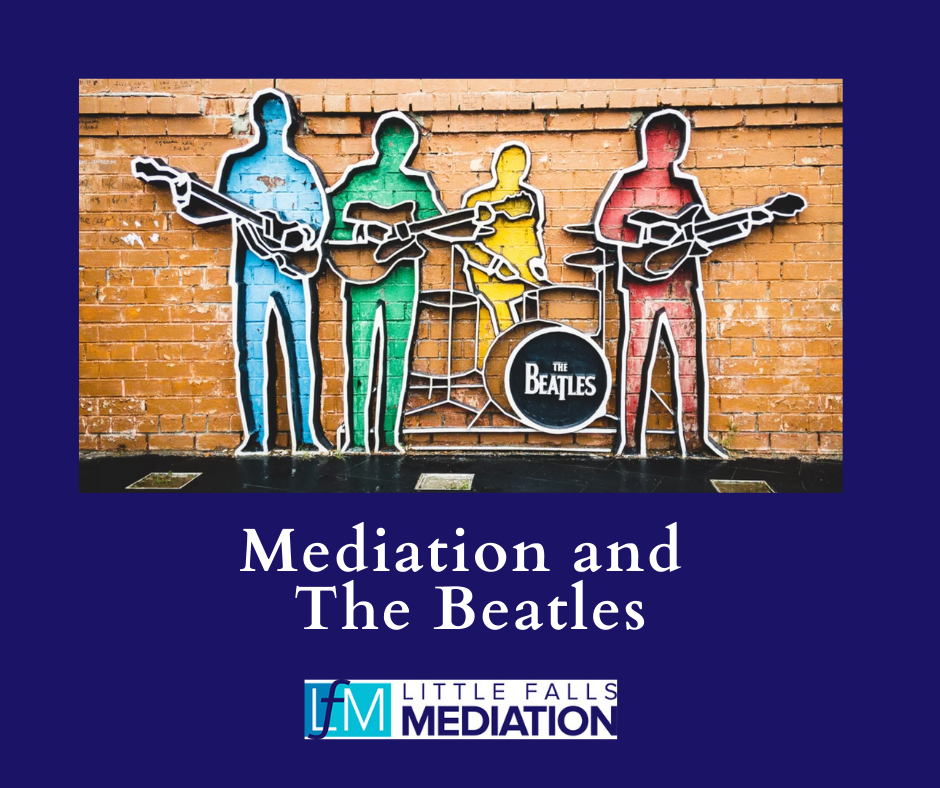 This year, our children all went to Charlottesville after Thanksgiving for the annual University of Virginia versus Virginia Tech football game which is always played on the Saturday after Thanksgiving. So Joel and I watched Peter Jackson’s The Beatles: Get Back, the eight hour, three part documentary, which takes us back to 1969. The Beatles had a short timeline in January to write new songs that they could perform in a live concert and release in an album. They knew that they were being filmed for a documentary as well. The microphones and cameras were hidden throughout the studio where they were working to create music. I could not stop watching. The children thought we were crazy watching for all those hours. But who doesn’t love the Beatles? Watching the dynamics of this beloved group and listening to their melodies and lyrics come together made me think about how crucial their music was to me years ago as a teenager. Their music is so familiar and still important to me today. From my perspective while watching the series, Paul became the leader of the group, trying to keep everyone on task to come up with new material for a surprise short live concert on the rooftop of Apple Corps, their headquarters. He was collaborative yet knew how he wanted things to sound. I got the feeling that although he was seeking feedback from John, George, and Ringo, he really had a vision regarding how the music needed to sound. He wanted the music to sound a certain way -- so maybe he was not listening to the feedback he was soliciting. Ringo was amiable and got along with everyone. When he was needed to be the drummer, he was present for everyone. John seemed to be goofing around a lot. He brought Yoko Ono to the daily songwriting and rehearsal sessions, and habitually arrived late to rehearsal. He later commanded the stage during the roof top performance but did not seem productive during creative song writing sessions. George was on the quiet side and I felt his contributions were valuable yet underutilized. At one point, early on, he quit the Beatles for five days. After the Beatles broke up, Paul went on to have a happy and long marriage with Linda and a successful career with his new band Paul McCartney and Wings. George went on to produce songs in different genres and collaborated with Eric Clapton and Billy Preston, among others. He had a happy marriage with second wife Olivia. Ringo Starr had a successful solo career and happy marriage with second wife Barbara. And John Lennon devoted the last years of his life to staying at home with his son Sean and Yoko Ono. Maybe they all needed to go their separate ways so that they could all creatively grow and flourish? Still, I couldn’t help but wish that all of the members of the Beatles had reunited before John Lennon’s death. And I could not help but wonder if mediation could have helped the Beatles to stay together just a little bit longer so that they could have continued to create beautiful music. I would love to go back in time to 1969 and bring my conflict resolution skills to the band. I would facilitate communication and interest-based negotiation between band members. I would empower each member of the band to help make sure that Paul would actively listen to the opinions of all, that George would use his voice and communicate his concerns clearly, that John would come to the studio on time and make meaningful contributions during rehearsals, and that Ringo would feel good about his songwriting skills... “Blackbird singing in the dead of night. Take these broken wings and learn to fly...”-- Paul McCartney |
AuthorEllice Halpern, J.D., is a Virginia Supreme Court certified general and family mediator. Archives
March 2024
Categories |
Copyright © 2015 www.littlefallsmediation.com

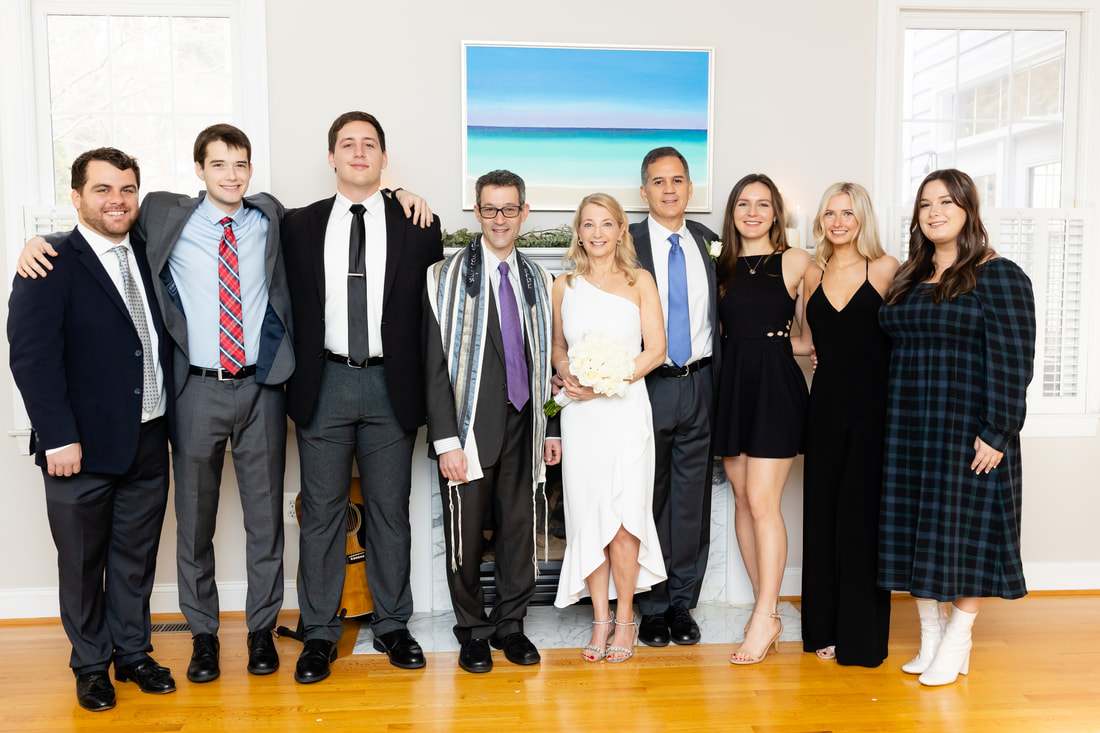
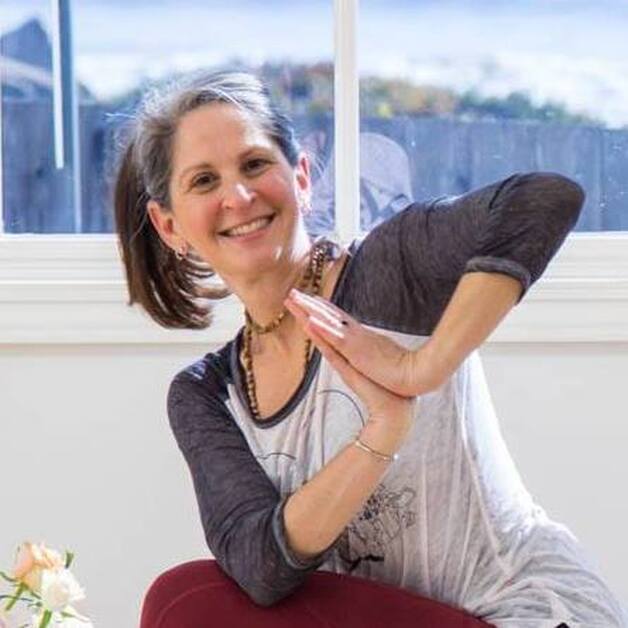
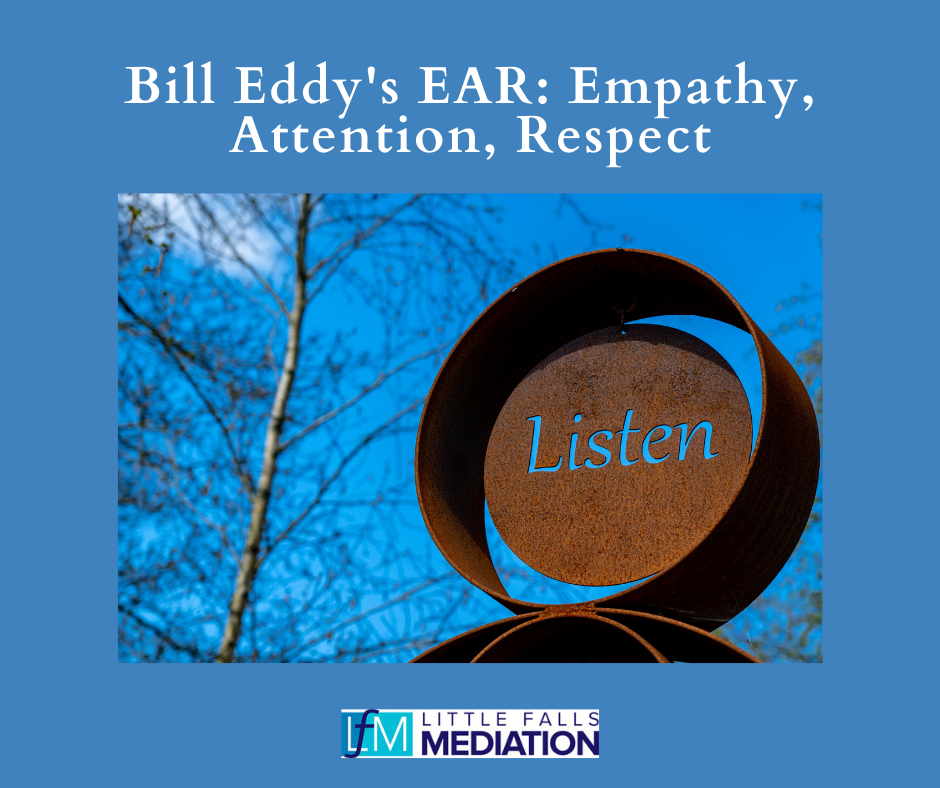
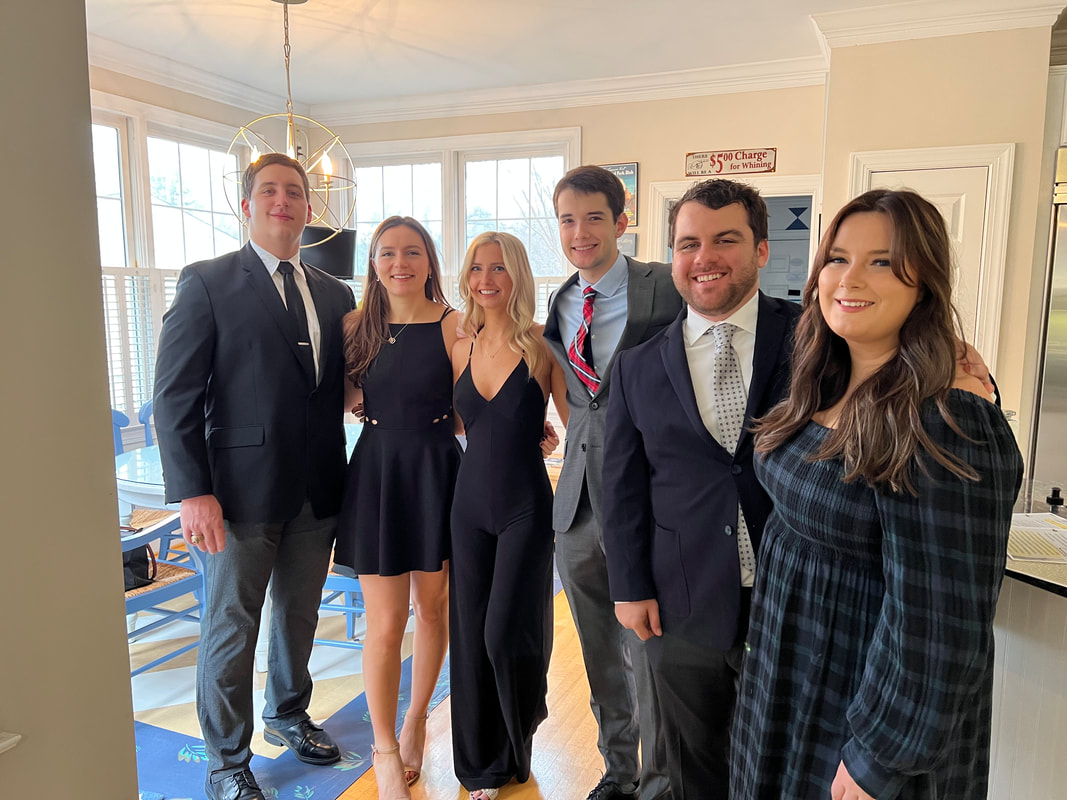
 RSS Feed
RSS Feed